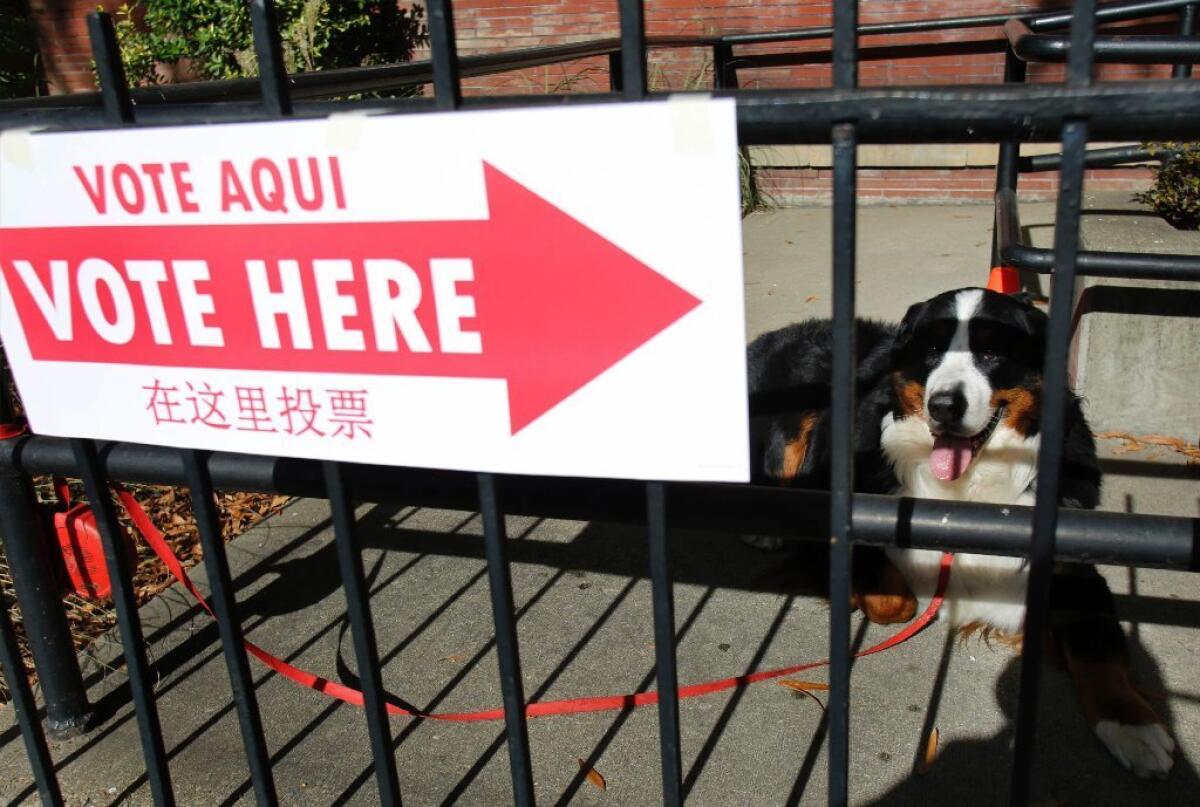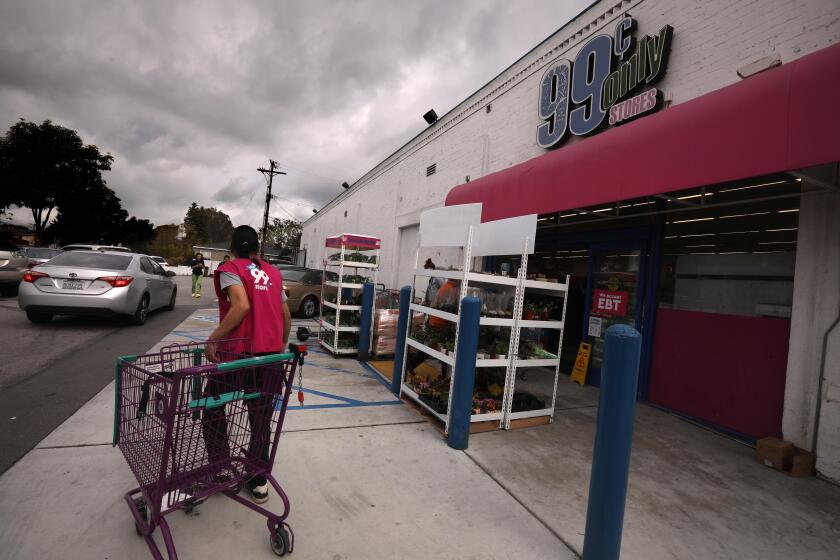Opinion: Why I voted no on D.C. statehood

In addition to voting for president, voters in the District of Columbia, where I have lived since 2003, were asked if we wanted Congress to admit the district to the Union as the new state of New Columbia (raising the question of where Old Columbia can be found).
I voted no.
Is that because I’m a self-hating inhabitant of jurisdiction whose license-plate motto is “Taxation Without Representation”?
No, I do resent the fact that I pay federal taxes and have no voting representation in Congress. But that would be remedied partly if Congress adopted legislation — endorsed by the Los Angeles Times editorial board a few years ago — that would give D.C. residents a voting representative in the U.S. House of representatives, the “people’s House.”
But what about the U.S. Senate, where D.C. residents also lack a voting representative.
Ay, there’s the rub. Advocates of D.C. statehood often act as if the question of statehood is the same as representation in the Senate, but it’s not. Residents of D.C. could be given two senators through a process called “retrocession” if Maryland claimed back land it ceded to create parts of the District. Of course, they would be senators from Maryland.
Retrocession wouldn’t do much for the Democratic Party, which probably would gain two sure Senate seats if D.C. became a state. (It’s also widely assumed that D.C.’ S senators would be African American, though that is less likely with the growth in the district’s white population.)
But if you don’t consider questions of partisan or racial advantage, what really is the argument for making D.C. a state?
Statehood advocates point to the fact that the district has more inhabitants than existing states such as Vermont and Wyoming. But so what? Several other cities have populations that large or even larger (L.A.: 3.9 million; New York: 8.5 million; Chicago: 2.7 million). Should they also be made states and given two senators?
The problem is that we don’t really have a consistent definition of what constitutes a state. In constitutional theory, all states have “equal dignity,” but in fact they are a mixed bag comprising the original 13 colonies, parcels of land acquired from foreign states, former federal territories and the erstwhile Republic of Texas. (The “Republic of California” existed mostly on a flag.)The fact that sparsely populated Delaware (population 945,934) gets the same number of senators as super-populous California (39 million) offends the principle of one-person, one-vote. But that imbalance is supposed to be justified by the equal dignity Delaware and California enjoy as members of the compact of “these United States” that is the Constitution.
But the plural “these” is an anachronism heard mostly in speeches at political conventions. In popular parlance, and in practical governance, “United States” is a singular. The dignity of the states has taken a lot of blows, beginning with the Union victory in the Civil War and continuing with the enactment of the 14th Amendment, the addition of the 17th Amendment providing for the popular election of U.S, senators and continuing with the Supreme Court’s expansion of Congress’ power under the Commerce Clause of the Constitution.
Meanwhile, social and technological change has undermined the notion that people are primarily citizens of their states. In today’s presidential elections, lots of voters in Northern Virginia suburbs have more in common with voters in D.C,. and Maryland than they do with voters in rural parts of their state.
So maybe it’s time for a national conversation — or even a constitutional convention — about whether states are still significant enough entities to justify their special treatment in the federal Constitution. Maybe the result will be that D.C. won’t become a state but L.A. and New York City will. Or that some states will have more senators than others. Or that the number of states will shrink. Or that Congress will become a unicameral legislature.
Meanwhile, if my fellow D.C. residents insist on representation in the Senate, Maryland awaits.
Follow the Opinion section on Twitter @latimesopinion and Facebook
More to Read
A cure for the common opinion
Get thought-provoking perspectives with our weekly newsletter.
You may occasionally receive promotional content from the Los Angeles Times.







